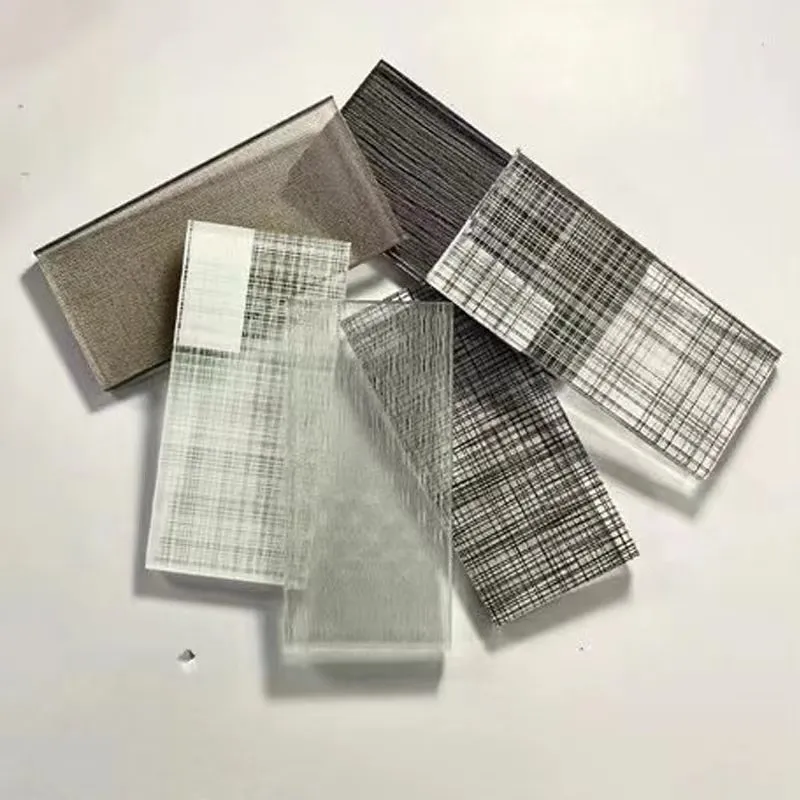Float Glass Panels An Overview of Their Applications and Benefits
Float glass panels have emerged as a popular choice in various applications, from architecture to art, due to their unique manufacturing process and superior qualities. This article explores what float glass panels are, their production method, advantages, and diverse uses in modern society.
What is Float Glass?
Float glass is a type of flat glass that is known for its clarity and smooth surface. The term float refers to the manufacturing process in which molten glass is floated on top of molten tin. This method yields a uniform thickness and an incredibly smooth surface, free from distortions. The final product can be processed into a variety of thicknesses and sizes, making it highly versatile for different applications.
Manufacturing Process
The manufacturing process of float glass is fascinating. It begins with raw materials such as silica sand, soda ash, and limestone. These materials are mixed and melted at a high temperature, around 1,600 degrees Celsius. Once melted, the glass is poured onto a bath of molten tin. The glass floats on the tin, which is heavier, allowing it to spread evenly across the surface. As the glass cools, it becomes solid and is then cut into panels of various sizes.
The precision of this process results in a flat, flawless surface, making float glass the preferred option for many industries. The panes can then undergo various treatments, such as annealing, to ensure strength and stability.
Advantages of Float Glass Panels
One of the most significant advantages of float glass panels is their clarity. The manufacturing process minimizes impurities, resulting in a transparent and distortion-free surface. This characteristic makes float glass ideal for applications such as windows, facades, and displays.
float glass panel
Moreover, float glass panels can be treated to enhance their safety, energy efficiency, and aesthetic appeal. For instance, they can be tempered to withstand impact or laminated for enhanced strength. Additionally, coatings can be applied to improve thermal insulation or reduce glare, making them suitable for energy-efficient buildings.
Another notable benefit of float glass is its recyclability. The production process can utilize recycled glass, reducing the environmental impact. It is also easy to recycle used float glass, which can be repurposed into new products, contributing to sustainability efforts.
Applications of Float Glass Panels
Float glass panels are used in a wide range of applications. In the architectural sector, they are integral to window construction, curtain walls, and glass doors. The transparency and modern look of float glass enhance the aesthetic appeal of buildings, creating a light-filled environment while maintaining a connection to the outside world.
In addition to architecture, float glass panels are widely used in the automotive industry for windshields and windows. The strength and clarity of float glass ensure safety for passengers while enhancing the vehicle's overall design.
Moreover, float glass is frequently utilized in interior design, particularly in furniture and décor elements. Glass tables, shelves, and partitions benefit from the aesthetic qualities and durability of float glass panels. Additionally, they are commonly used in electronic displays, where clarity and precision are paramount.
Conclusion
Float glass panels represent a remarkable blend of aesthetic appeal and practical functionality. Their transparent quality, versatility, and eco-friendliness make them a preferred choice across various industries. As architecture becomes increasingly focused on sleek design and sustainability, float glass will continue to play a critical role in shaping our built environment. Whether used in modern skyscrapers or beautifully designed furniture, float glass panels elevate both the look and performance of countless applications, making them an essential material in today’s world.
 Afrikaans
Afrikaans  Albanian
Albanian  Amharic
Amharic  Arabic
Arabic  Armenian
Armenian  Azerbaijani
Azerbaijani  Basque
Basque  Belarusian
Belarusian  Bengali
Bengali  Bosnian
Bosnian  Bulgarian
Bulgarian  Catalan
Catalan  Cebuano
Cebuano  Corsican
Corsican  Croatian
Croatian  Czech
Czech  Danish
Danish  Dutch
Dutch  English
English  Esperanto
Esperanto  Estonian
Estonian  Finnish
Finnish  French
French  Frisian
Frisian  Galician
Galician  Georgian
Georgian  German
German  Greek
Greek  Gujarati
Gujarati  Haitian Creole
Haitian Creole  hausa
hausa  hawaiian
hawaiian  Hebrew
Hebrew  Hindi
Hindi  Miao
Miao  Hungarian
Hungarian  Icelandic
Icelandic  igbo
igbo  Indonesian
Indonesian  irish
irish  Italian
Italian  Japanese
Japanese  Javanese
Javanese  Kannada
Kannada  kazakh
kazakh  Khmer
Khmer  Rwandese
Rwandese  Korean
Korean  Kurdish
Kurdish  Kyrgyz
Kyrgyz  Lao
Lao  Latin
Latin  Latvian
Latvian  Lithuanian
Lithuanian  Luxembourgish
Luxembourgish  Macedonian
Macedonian  Malgashi
Malgashi  Malay
Malay  Malayalam
Malayalam  Maltese
Maltese  Maori
Maori  Marathi
Marathi  Mongolian
Mongolian  Myanmar
Myanmar  Nepali
Nepali  Norwegian
Norwegian  Norwegian
Norwegian  Occitan
Occitan  Pashto
Pashto  Persian
Persian  Polish
Polish  Portuguese
Portuguese  Punjabi
Punjabi  Romanian
Romanian  Russian
Russian  Samoan
Samoan  Scottish Gaelic
Scottish Gaelic  Serbian
Serbian  Sesotho
Sesotho  Shona
Shona  Sindhi
Sindhi  Sinhala
Sinhala  Slovak
Slovak  Slovenian
Slovenian  Somali
Somali  Spanish
Spanish  Sundanese
Sundanese  Swahili
Swahili  Swedish
Swedish  Tagalog
Tagalog  Tajik
Tajik  Tamil
Tamil  Tatar
Tatar  Telugu
Telugu  Thai
Thai  Turkish
Turkish  Turkmen
Turkmen  Ukrainian
Ukrainian  Urdu
Urdu  Uighur
Uighur  Uzbek
Uzbek  Vietnamese
Vietnamese  Welsh
Welsh  Bantu
Bantu  Yiddish
Yiddish  Yoruba
Yoruba  Zulu
Zulu 

